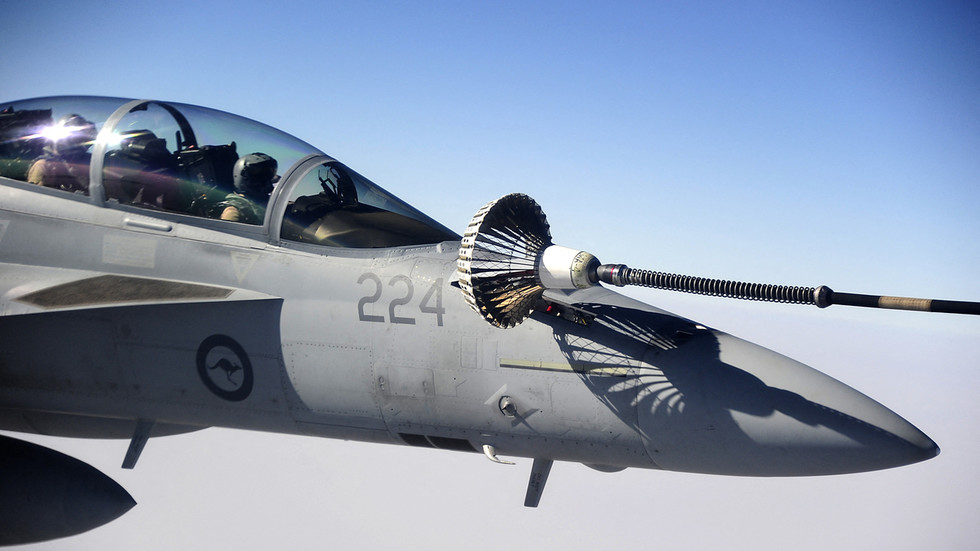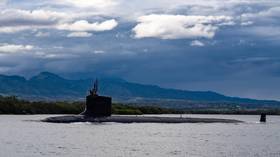
Help is available to Australian aviators “troubled by the experiences they saw,” RAAF Air Vice Marshal Darren Goldie says

FILE PHOTO: An Royal Australian Air Force F/A-18F Super Hornet aircraft refuelling in the air. © AFP / Mick Davis
Pilots of Royal Australian Air Force are being offered psychological assistance after aerial encounters with Chinese warplanes over the South China Sea, RAAF Air Commander, Air Vice Marshal Darren Goldie has said.
“The mental health of our aviators and people… coming in contact with things like intercepts or challenges on the radio… it’s important that when we bring them back, we talk to them about the experience,” Goldie told ABC on Sunday.
The RAAF keeps pilots informed about “what services are available, should they be troubled by the experiences they saw,” he added.
Special attention is being given to the wellbeing of aviators who aren’t in the pilot’s seat, as they have less control in tense encounters, the air vice marshal said.
According to Goldie, the preparation of Australian airmen for missions has also evolved as “we’ve seen the operational environment change” above the South China Sea.

Read more
Most of this body of water in the Western Pacific Ocean is claimed by Beijing as part of its own territory, despite overlapping claims by Vietnam, the Philippines, Malaysia, Taiwan and Brunei. The US and its allies, including Australia, have carried out frequent naval and aerial missions in the South China Sea in recent times, as Washington insists that it “challenges excessive maritime claims around the world regardless of the identity of the claimant.”
“There has been a trend recently where we’ve seen a more aggressive posture set,” RAAF Chief Rob Chipman said, referring to the actions by the Chinese pilots. “When that occurs then we raise those issues, raise those concerns, through diplomatic channels,” he added.
Last June, Canberra accused Beijing of a dangerous intercept, which took place a few weeks before and saw a Chinese J-16 fighter jet releasing a bag of “chaff” into the flight path of Australian P-8 maritime surveillance plane. The move by the Chinese pilot led to aluminum fragments being sucked into the engine of the RAAF aircraft, according to the Australian military.
READ MORE: Australia defies health advice on Covid tests for Chinese arrivals
The Chinese Defense Ministry insisted the actions of its jet were reasonable and lawful as it was the Australian plane that had seriously threatened China’s sovereignty and security. Beijing “resolutely” opposes military actions by Canberra in the region, it stressed.




